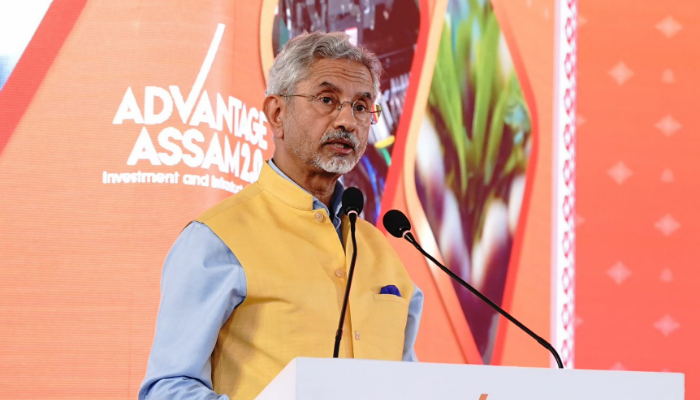External Affairs Minister Dr S Jaishankar on Wednesday reminded Pakistan that India is waiting for Islamabad to “return the stolen part” of Jammu and Kashmir.
Responding to a Pakistani journalist’s question, the EAM said while conflict in the region is “mostly solved” following the removal of Article 370 and by bringing growth and holding elections there, the unresolved aspect of the issue could be resolved when the stolen part of Kashmir, which is under an illegal Pakistani occupation, is returned to India.
“I think the part we are waiting for is the return of the stolen part of Kashmir, which is under an illegal Pakistani occupation. When that is done, I assure you, Kashmir solved,” Dr Jaishankar stated.
The EAM was participating at a discussion at the Chatham House in London. On India’s relationship with the US under President Donald Trump, Dr Jaishankar said Washington DC’s shift towards a multipolar world aligned with India’s interests.
“We see a president and an administration which, in our parlance, is moving towards multipolarity, and that is something that suits India,” he said.
He also pointed to the Quad alliance-comprising India, the US, Australia, and Japan-as a successful example of cooperation. “From President Trump's perspective, the one big shared enterprise that we have is the Quad, which is an understanding where everybody pays their fair share. There are no free riders involved. So that's a good model which works,” he added.
On trade, the EAM said India and the US had agreed on the need for a bilateral trade pact, following discussions between PM Modi and Trump at the White House.
He stated that Commerce and Industry Minister Piyush Goyal was currently in Washington to further these negotiations. “We had a very open conversation about it (tariffs), and the result of that conversation was that we agreed on the need for a bilateral trade agreement,” he said.
EAM Dr Jaishankar also addressed a range of other issues, including India's relationship with China, the internationalization of the rupee, the role of the US dollar in the global economy, and the stance of BRICS countries on the matter.
On India's position on the dollar's dominance, Jaishankar said, “I don't believe there is any policy on our part to replace the dollar. At the end of the day, the dollar as a reserve currency contributes to international economic stability, and what the world needs right now is more stability, not less.”
The EAM also rejected the notion of a unified BRICS stance against the dollar, pointing out that member nations-especially with the group's recent expansion-hold diverse views on the subject. “The assumption that BRICS has a united position against the dollar is not supported by facts. While multipolarity exists, that does not necessarily mean it has to extend to currency multipolarity,” he said.












 Contact Us
Contact Us  Subscribe
Subscribe  News Letter
News Letter  Instagram
Instagram Youtube
Youtube